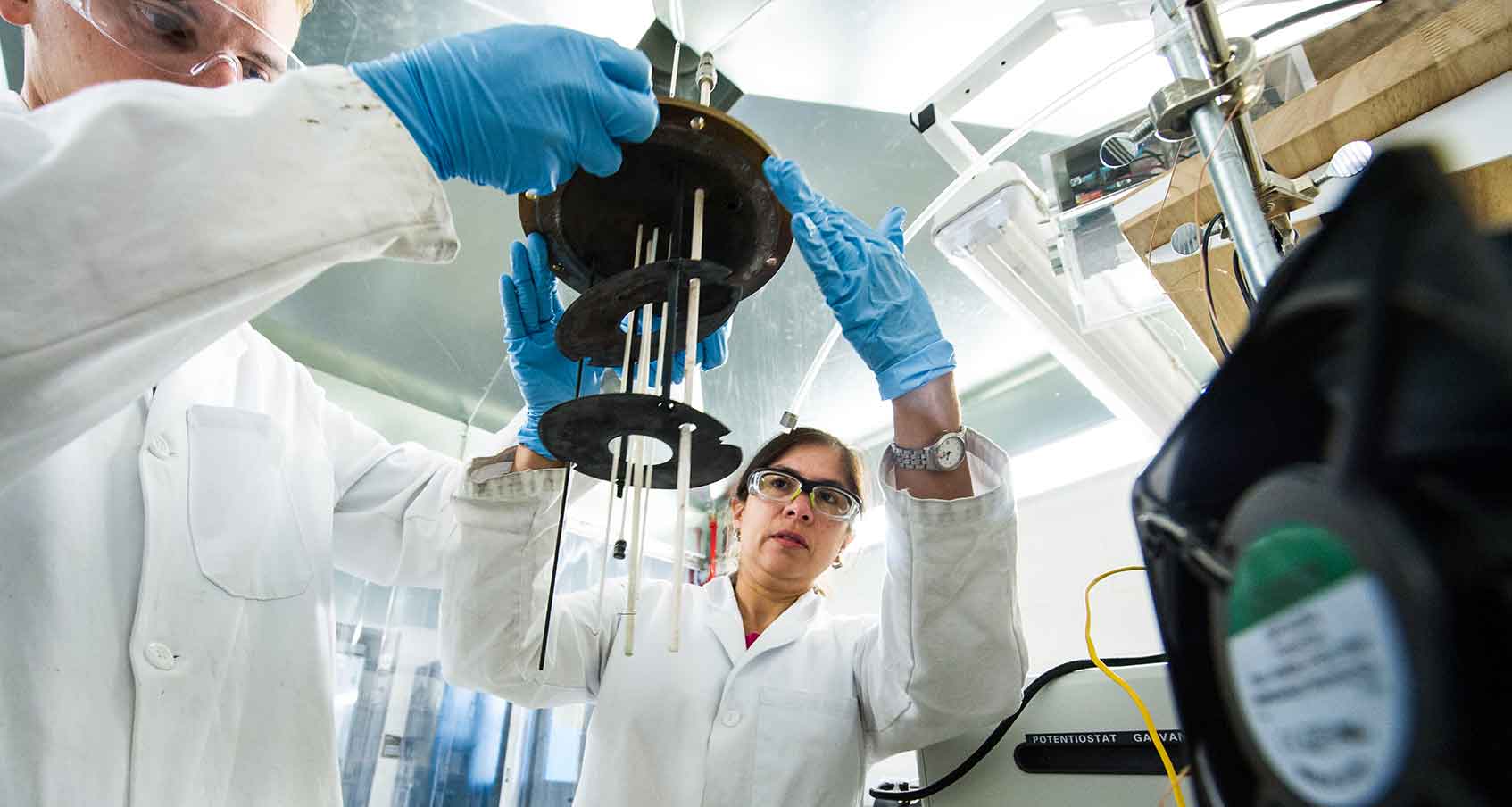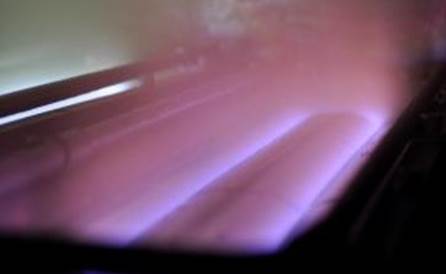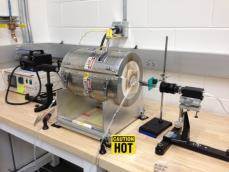Materials Science
National Renewable Energy Laboratory (NREL) researchers develop and support others in developing materials for use in concentrating solar power (CSP). These materials include higher-reflectivity mirrors, better thermal-absorbing receivers, and more corrosion-resistant materials. Researchers also test the durability of these materials. Researchers also test the chemical durability of corrosion-resistant materials and the durability of optical materials.

NREL researchers are working to understand the fundamental corrosion mechanisms of materials when exposed to high-temperature fluids.
Learn more about the capabilities discussed below by contacting the CSP Research Staff.

Magnetron sputtering in the Thin-Film Deposition Lab can heat a substrate to up to 900 °C.
Thin-Film Deposition Laboratory
Our Thin-Film Deposition Laboratory is capable of producing samples through physical vapor deposition techniques including pulsed-DC reactive and co-sputtering, radio-frequency sputtering, dual electron-beam evaporation with ion-beam assist, plasma-enhanced chemical vapor deposition, and thermal evaporation. We can produce uniform samples up to about 5" x 5".

In the Storage Process and Components Lab, the performance of storage fluids and systems can be determined up to 800 °C.
Advanced Thermal Storage Materials Laboratory
Our Thermal Storage Materials Laboratory supports NREL's research and development of advanced transfer fluids for next-generation CSP systems. Our goal is to identify fluids with thermal and oxidative stabilities that can withstand extreme operating conditions, such as temperatures up to 800 ºC, and that can function as advanced thermal storage media. However, at these extreme operating temperatures, these fluids can be very corrosive and can damage tanks and piping. So, we are also evaluating the corrosion and degradation stability of containment materials in those fluids.
To develop these heat-transfer fluids, we use a synthetic chemistry laboratory that combines a work area for basic wet chemistry with extensive thermal and spectroscopic analysis capabilities. We can synthesize fluids in gram quantities and immediately evaluate their thermal behavior.
Share
Last Updated Dec. 11, 2024
